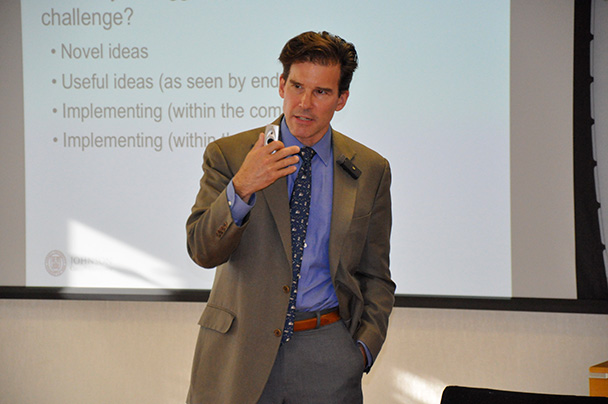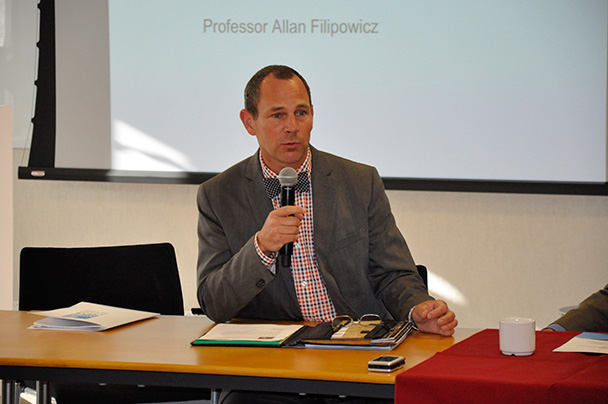
“New executives can lead innovation at family firms by accepting failure as a necessary part of the innovation process,” says Cornell University Professor Allan Filipowicz at a CKGSB-Cornell University event in New York on June 3.
During the session – Leading Innovation: A Multi-Level Approach – Professor Filipowicz said that new leaders of family enterprises must understand that innovation thrives in environments that encourage experimentation and incremental change, rather than quick outcomes.
“Innovation is going to be very, very slow,” said Professor Filipowicz, who is the Clinical Professor of Management and Organizations at the Samuel Curtis Johnson Graduate School of Management at Cornell. “You will do something, nothing will happen; you’ll do it again, nothing will happen. And so what happens is we give up much too soon.”
Companies, he told an audience at the CKGSB Americas learning center, should focus more on process than outcome – no small task. “Process goals are a measure of effort,” said Professor Filipowicz. “We love measuring outcomes. We hate measuring effort.”
GEL Program, July 10-24
Professor Filipowicz’s address came as CKGSB and Cornell’s Johnson School of Management prepare to co-present the Global Emerging Leaders in Family Enterprise (GEL) program, July 10-24. The two-week leadership development opportunity for entrepreneurs from American, Chinese and global family enterprises will be held in New York City, Ithaca (New York) and Beijing.
Taught by leading faculty from CKGSB and Cornell, GEL participants receive preparation for success as next-generation business leaders by getting connected to peers and innovators. A key element of GEL is the opportunity to visit major US and Chinese companies and meet C-suite and senior executives. Participants who complete both the US and the China module in good standing receive a professional certificate from CKGSB and the Samuel Curtis Johnson Graduate School of Management at Cornell.
Professor Filipowicz’ lecture helped reinforce how family enterprises represent a growing force in the economies of China and other emerging markets. With family-owned businesses expected to represent nearly 40 percent of the world’s large enterprises by 2025, they also come with built-in challenges – developing global leaders for the future of the enterprise and sustaining wealth into the next generation and beyond.

Daniel G. Van Der Vliet, Executive Director of the Smith Family Business Initiative at Cornell, began the presentation by saying that in China and Latin America, 90 percent of businesses are family-owned. In India, 98 percent of businesses have family ownership. In the United States, 70 to 90 percent of businesses are family-owned.
For future family leaders, innovation is crucial to stand out in a fiercely competitive, increasingly connected marketplace. By combining an informed world view with knowledge of new business models, technology and innovation, young leaders can take their family’s business to the next level.